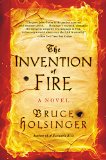Summary | Excerpt | Reviews | Beyond the Book | Readalikes | Genres & Themes | Author Bio

Bagnall left us with a curt nod. Chaucer stared after him as the old stairs protested his descent with a groan of loose nails. "Blunt man. Always has been."
"Bluntness has its place," I said. "Though I'll need such frankness from more than your gateman if I'm to learn who these poor fellows were, and where they came from."
Chaucer pressed my arm as he walked me to his Aldgate door for the last time. "I shall be back for Parliament soon. You will be in town?"
"Do I ever leave?"
"You've not come out to Greenwich yet, John. I have plenty of room for visitors—more than I ever had in this place." He looked around, his bright eyes mellowed with regret at leaving a city so much a part of his blood. Like his father, a London vintner, Chaucer had been born and would surely die within these walls, which he had always regarded as a sort of outer skin. I thought of him strolling through the countryside, waking to roosters instead of bells, attending Mass at the tiny church in Greenwich rather than at the urban parish that had been his devotional home for so many years.
He caught my sad smile, and at the door he turned his full attention on me. Ours was a unique friendship, its complexity never more deeply felt than at those moments of farewell, all too frequent in recent years.
"Be careful with yourself, John, and mind your back." His palm was on my wrist. "Whoever threw those bodies in the Walbrook knew they would be found." He looked out along the rooftops of the inner ward. His grip tightened. "And didn't much care."
FROM THE NARROW PASSAGE before Chaucer's house I walked north through the boundaries of the parish of St. Botolph, lingering at each tower to dispense coins and questions. From that height London appeared almost tranquil, cleaner and somehow nobler than the square mile of squalor and moral compromise sprawled between these walls. The city's roofs formed a grand patchwork of ambition and decay, the spans of greater halls and the thrusting heights of new towers set within the humbler timbers of tenements and lower shopfronts. Even the smoke rising from smithies and ovens possessed a humble majesty, grey tendrils striving for the sky, vaporous strands of the city's hopes. Yet London was hardly at peace. Masons were at work at every turn, fortifying the wall and heightening it in certain places deemed particularly vulnerable to engine or incursion. It was known that a great navy had been assembling at Sluys since midsummer, ready to seek vengeance for years of English brutality in France and Burgundy. With the Duke of Lancaster in Castile seeking a crown and much of the upper nobility increasingly belligerent toward the king, a mood of lowering doom had settled over the realm of late, as the nation braced itself for invasion from the sea.
The feeling sharpened as I neared Bishopsgate and the armories. Somewhere below three smiths worked in tandem, the varied weights of their hammers entwined in a clanging motet, turning out breast- plates, helmets, hauberks, the mundane machinery of war. I spoke for a while to the tollkeeper, whose wife I had bought out of a city gaol the previous summer, though learned no more than I had from Bagnall.
Now Cripplegate. On the second level above the gatehouse there was a small hermitage, filthy from the habits of its longtime occupant though an unavoidable stop given my needs. The low and nearly secret door, reached by squeezing around one of the guard towers from the lower walkway, was closed against the wind. A smudged face could be seen through the rectangular gap in the bricks that served as the chamber's sole window aside from a narrow squint low on the far side. The hermit's eyes were closed above his massive beard, a swath of matted filth that covered nearly every inch of a face thinned by years of self-denial and hunger. The stench from the hole was a rich stew of man, dung, and time.
Excerpted from The Invention of Fire by Bruce Holsinger. Copyright © 2015 by Bruce Holsinger. Excerpted by permission of William Morrow. All rights reserved. No part of this excerpt may be reproduced or reprinted without permission in writing from the publisher.




A library is a temple unabridged with priceless treasure...
Click Here to find out who said this, as well as discovering other famous literary quotes!
Your guide toexceptional books
BookBrowse seeks out and recommends the best in contemporary fiction and nonfiction—books that not only engage and entertain but also deepen our understanding of ourselves and the world around us.